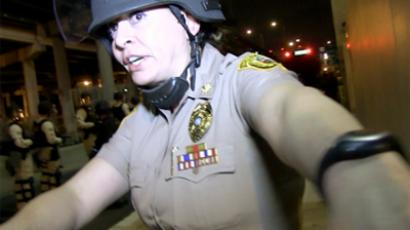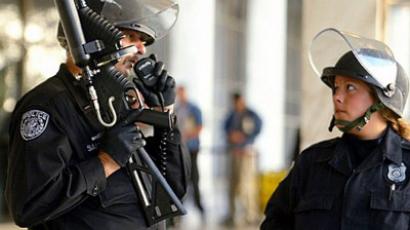NYPD loses face and first Occupy Wall Street trial
This case could have been a slam dunk for the NYPD, had it not been for one thing: the video showing police claims of disorderly conduct during an OWS protest to be completely untrue.
Hundreds have been arrested during the Occupy Wall Street protests, but photographer Alexander Arbuckle’s case was the first to go to trial – and after just two days, the Manhattan Criminal Court found him not guilty. Supporters of the OWS protest movement have already hailed the ruling as a major legal victory. Arbuckle was arrested on New Year’s Day for allegedly blocking traffic during a protest march. He was charged with disorderly conduct, and his arresting officer testified under oath that he, along with the protesters, was standing in the street, despite frequent requests from the police to move to the sidewalk. But things got a little embarrassing for the NYPD officer when the defense presented a video recording of the entire event, made by well-known journalist Tim Pool. Pool's footage clearly shows Arbuckle, along with all the other protesters, standing on the sidewalk. In fact, the only people blocking traffic were the police officers themselvesHis lawyers said the video proving that testimony false is what swayed the judge, and the verdict a clear indication that the NYPD was over-policing the protests.The irony of the case, however, is that Arbuckle was not a protester, or even a supporter of the Occupy movement. He was there to document the cops’ side of the story. A political science and photography major at NYU, Arbuckle felt the police were not being fairly represented in the media. “All the focus was on the conflict and the worst instances of brutality and aggression, where most of the police I met down there were really professional and restrained,” the student said. However, his good intentions only landed him in trouble. As with all the other detained protesters, the police offered Arbuckle an Adjournment in Contemplation of Dismissal (ACD), which basically means he would be let off the hook if he agreed not to fight the charges. But to Arbuckle, that meant an admission of guilt, and he decided to take the case to trial.
Katerina Azarova, RT














